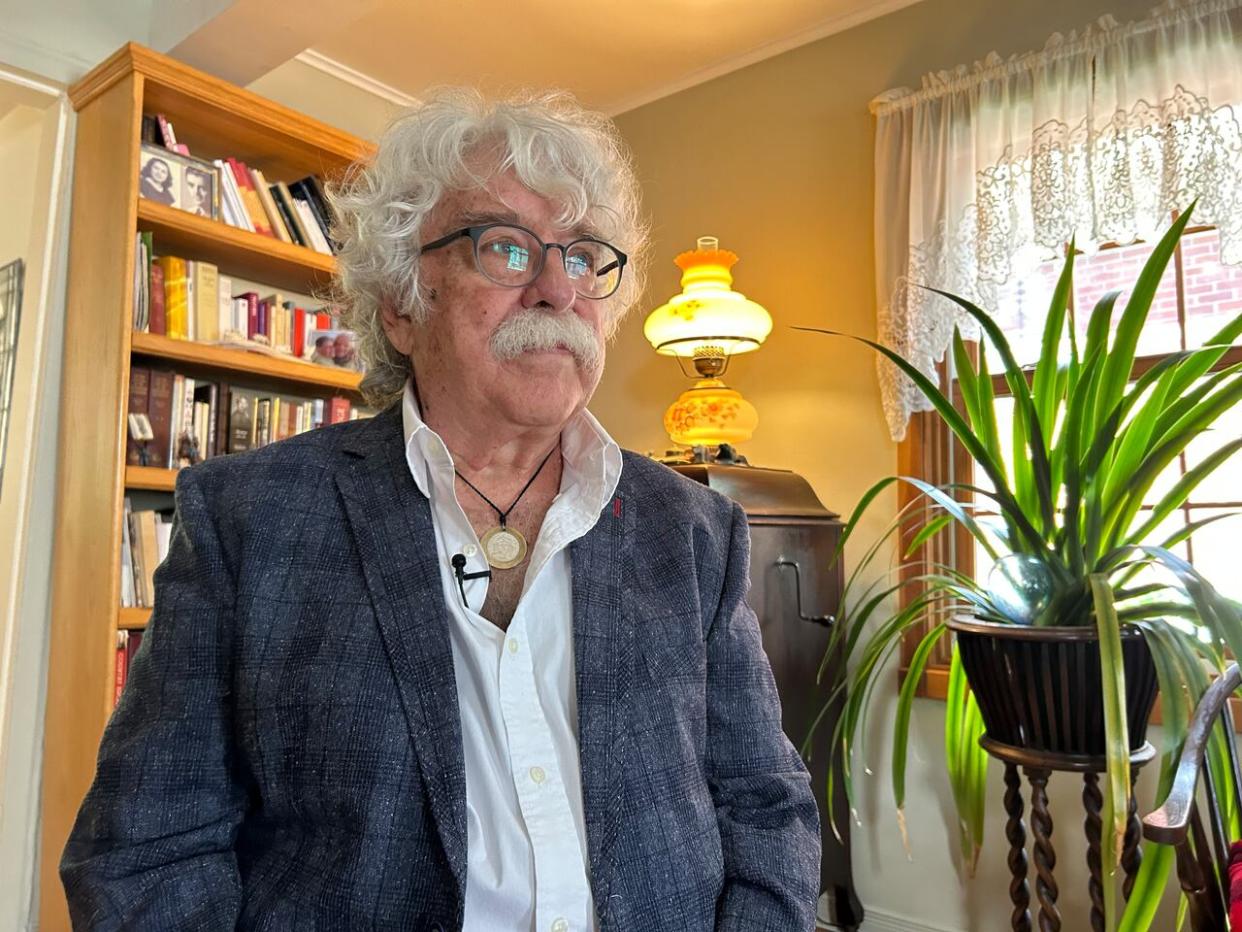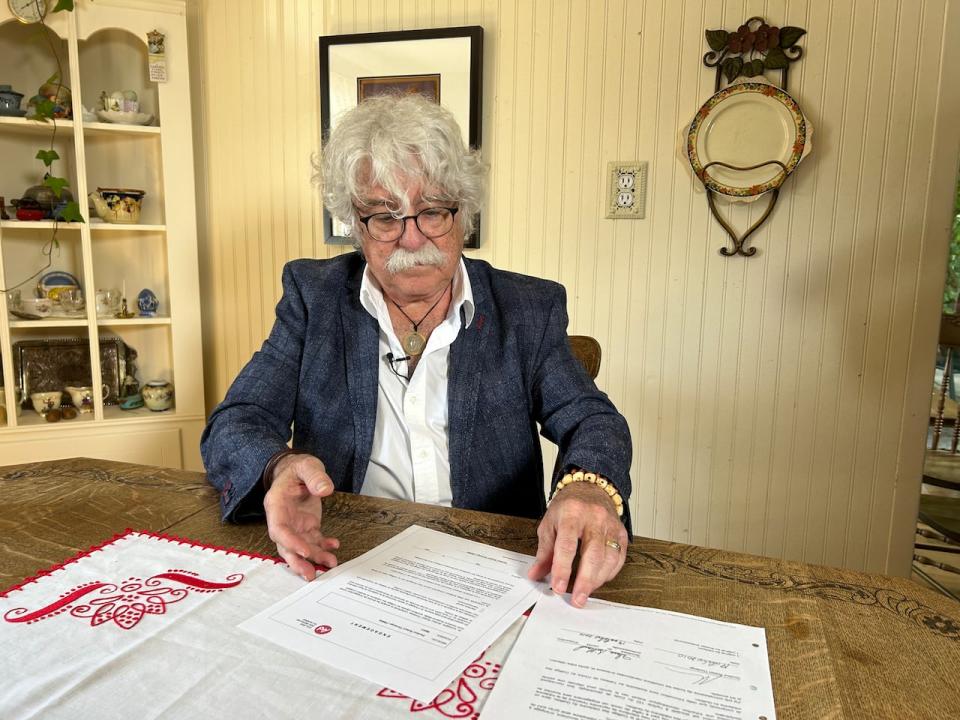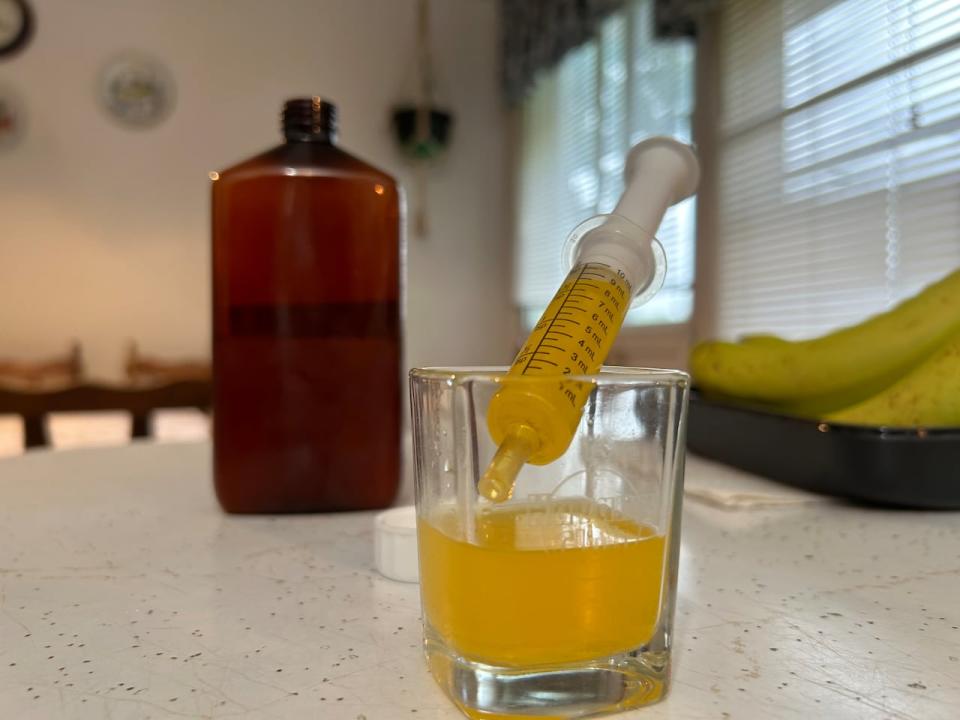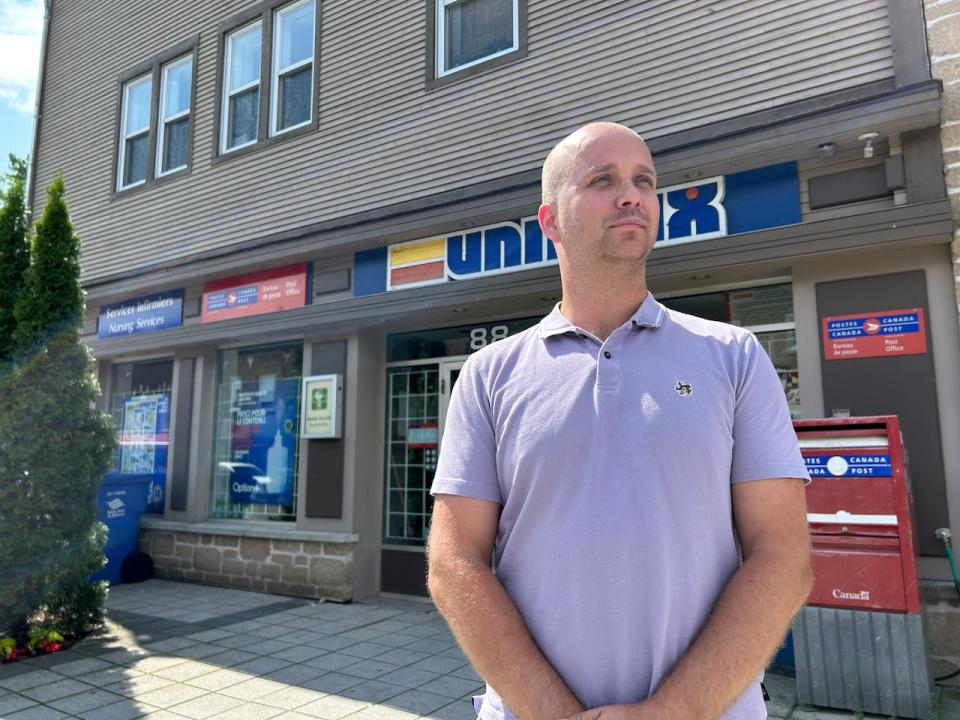Montreal addiction doctor says he was pushed to quit. His patients may be left in the lurch

A Montreal-area doctor who prescribes methadone, a painkiller used to treat opioid addiction, is shutting down his practice, potentially leaving many of his patients without access to addiction treatment.
Dr. Robert Thivierge, who has been practising for 45 years, was one of the first in Montreal to prescribe methadone to addicts trying to wean themselves off painkillers or heroin.
Thivierge will soon no longer be able to prescribe methadone to his 68 patients. He agreed to give up his medical licence because he broke an agreement he had with the Quebec College of Physicians (QCP), the professional order that oversees doctors.
Thivierge says he has always had a contentious relationship with the professional order.

Robert Thivierge shows his agreement with the Quebec College of Physicians which bars him from practising medicine after Aug. 1, 2023. (Rowan Kennedy/CBC)
In 2010, he was disciplined by the QCP for, he admits, failing to attend official seminars and do research required to continue his practice. As a result, he agreed to practise psychotherapy only in connection with his addiction work and to prescribe only methadone.
But he says he felt a responsibility to his patients, most of whom are opioid addicts, and he continued to prescribe them other medications if they needed them.
"I did break my [agreement] but I'm at peace with my conscience, let's put it that way," he said. "The Hippocratic oath is more important than any [agreement] I could have with any college of physicians, simple as that."
The college found out, and, in a contentious meeting, Thivierge agreed to end his practice on Aug. 1.
He told CBC he felt like he had no choice. "I'm too old to fight. I'm 74 years old. I'm tired," he said.
So, his patients will soon have to go elsewhere for a methadone prescription.
That's a concern for Machiek Zarzycki, a pharmacist and the owner of the Uniprix in Sainte-Anne-de-Bellevue, right next to Thivierge's practice.
"It's not easy, first of all, in Quebec, to find a family doctor, let alone find a doctor who will prescribe you methadone," said Zarzycki

Methadone is a non-toxic painkiller. Thivierge describes it as a lesser evil compared to more powerful opioids like heroin or fentanyl. (Rowan Kennedy/CBC)
A spokesperson for the QCP said Thivierge voluntarily limited his practice in 2010 and chose to give up his licence. The reasons are confidential, the spokesperson said. There were no disciplinary complaints against Thivierge.
Stigma around methadone
Methadone is a non-toxic opioid painkiller that can also used to treat addictions to other, more harmful drugs. It is still addictive but Thivierge describes it as a lesser evil.
Before 2018, only select doctors who had authorization from Health Canada could prescribe it, but rules were changed due to a worsening opioid epidemic and now every doctor can.
Still, most do not.
Zarzycki said there is a stigma around its use and Thivierge said most family doctors do not feel comfortable taking on an addict as a patient.

Machiek Zarzycki, a pharmacist and owner of Uniprix in Ste-Anne-de-Bellevue, Que., which is right next to Thivierge’s practice, said he is worried about patients who may lose access to methadone. (Rowan Kennedy/CBC)
One of Thivierge's patients, a man whose name CBC has agreed to withhold because he worries about the social impact of people knowing he's prescribed methadone, said he worries he may relapse if he loses access to it.
Thivierge's care went beyond just prescribing methadone. It included a 24/7 agreement to talk anytime to discuss his patients' addictions. "Especially if you're going to use (heroin or other street opioids), call me before you use," Thivierge explained.
Without that care, the patient who talked to CBC said he worries for himself — and for those who have more severe addiction problems and could turn to opioids from the street, which can be mixed with fentanyl, a powerful opioid more likely to end in an overdose.
He expects it to be difficult to find another doctor to prescribe methadone.
"There are no doctors that will take us on. They're booked to the rafters," he said. "It's going to be havoc.… It's going to get ugly out there. It's not everybody like me that can control themselves, ride it out."


